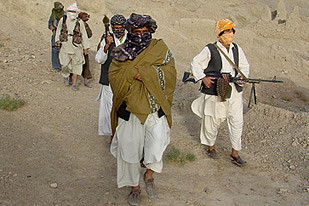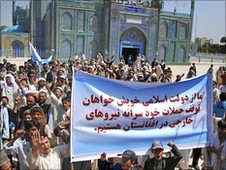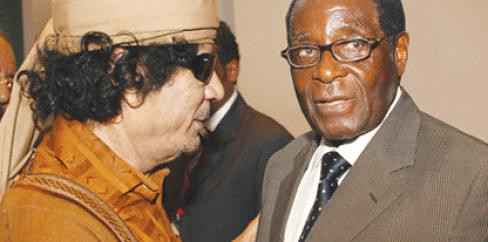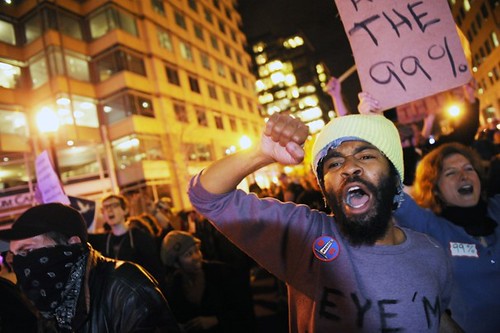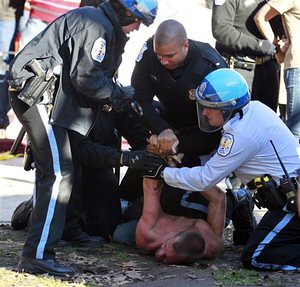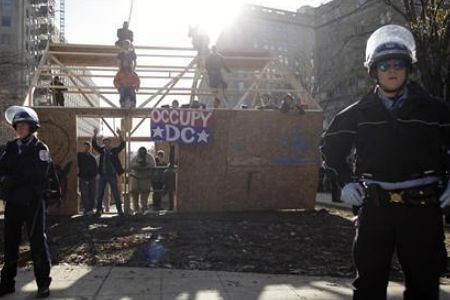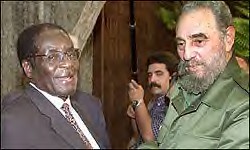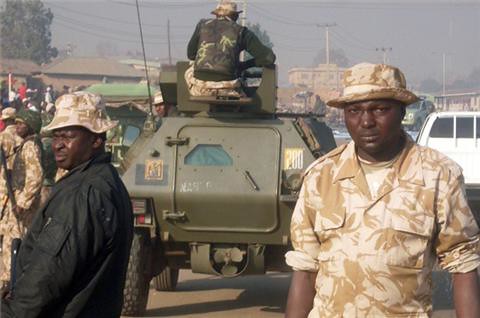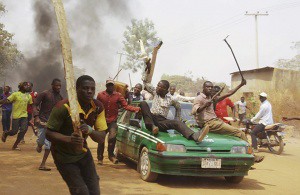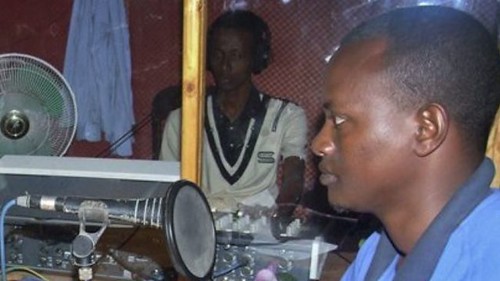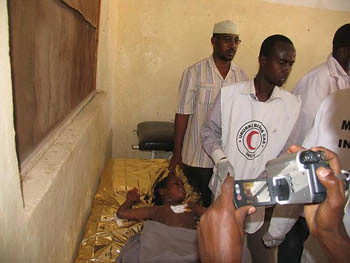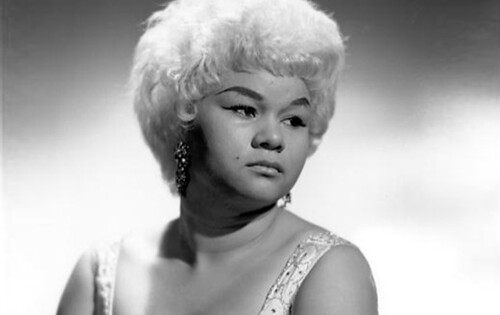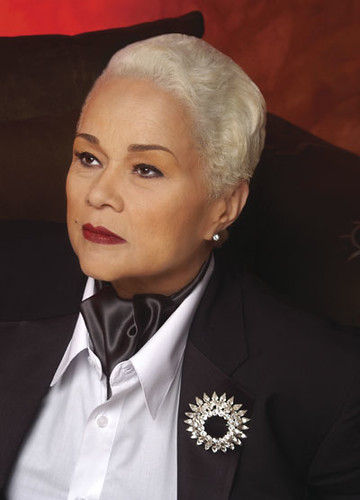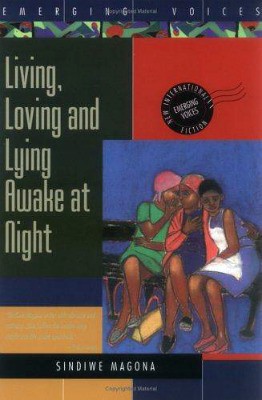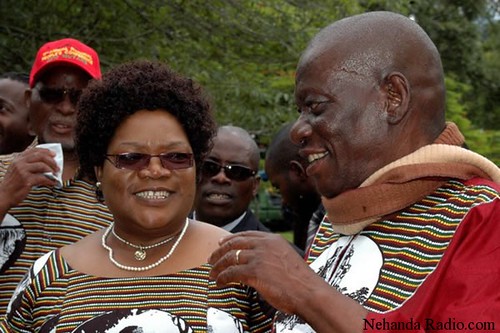Mujuru family wants pathologist quizzed
Saturday, 28 January 2012 00:00
Innocent Ruwende Senior Reporter
Zimbabwe Herald
THE Mujuru family has asked the court to call in a South African forensic expert to question the local pathologist who examined the remains of General Solomon Mujuru.
The family said should questions arise, they might apply for the exhumation of the remains to enable the South African expert to conduct another examination.
This came out during the ninth day of the inquest into the death of Gen Mujuru at the Harare Magistrates' Courts.
Gen Mujuru died in an inferno at his farmhouse in Beatrice in August last year, but policemen who testified yesterday ruled out foul play.
Presiding magistrate Mr Walter Chikwanha read out a letter from the family lawyer Mr Tekhor Kewada seeking a second pathological opinion.
He then asked Mr Kewada to justify the need for another pathologist and to state whether they had already found one.
Mr Kewada confirmed that he indeed wrote the letter on the family's behalf and said the justification will be that various experts have different opinions.
"There is always another possibility of another expert giving a different opinion on the cases of death from such circumstances," he said.
"From viewing records, the second pathologist may come to a different conclusion. My application is about calling a South African expert Dr Perumel. He has indicated he would be free to come to Zimbabwe."
MUJURU INQUEST
2 assault rifles found on Mujuru bedroom floor
Mujuru evidence destroyed - fireman
Mr Kewada said Dr Perumel may or may not agree with the first pathologist and questions could arise.
"The question is whether the body be exhumed or not," he said.
"I can only rely on what the experts would tell us. We are reliant on the opinion of the pathologist."
In response, Mrs Sharon Fero from the Attorney-General's Office confirmed receipt of the letter from Mr Kewada, but the State thought the family wanted the pathologist to help in questioning the evidence of the local pathologist Dr Gabriel Alviero.
Mr Chikwanha concurred with the State and said he had no application for exhumation of the remains before him.
He will rule on whether or not Dr Perumel should come in to help question Dr Alviero on Monday.
Earlier, the 28th witness in the inquest, Chief Supt Crispen Makedenge, said he requested printouts from Econet and Netone to have a look at his calls history.
He said he got the printout on September 14 of Gen Mujuru's 0773 411 909 number, but the Netone line had been terminated.
Asked the time when Gen Mujuru last made a call, Chief Supt Makedenge said on August 15 at around 2:56pm to number 0773 381 920.
He said on the same day, Gen Mujuru received a call at around 6pm from a UK number +44208640236.
Chief Supt Makedenge said they initially thought the number of firearms recovered was 17, but when they were reassembled, 15 firearms came out.
He said others were parts to firearms.
Chief Supt Makedenge ruled out that evidence was destroyed and said all the firearms recovered were registered in Gen Mujuru's name except for the AK47 rifle.
Mr Kewada asked Chief Supt Makedenge why the General changed his parking spot on the day in question, preferring to park on the opposite side and labour himself by going round the house and use the kitchen entrance to get into the house.
Chief Supt Makedenge said no one could give them the answer during investigations.
Mr Chikwanha asked how they managed to identify Gen Mujuru's remains and Supt Makedenge said it was through taking a blood sample from his daughter Kumbirai and matching from his tissue.
He said the match was 99 percent.
Asked how the General met his death, Chief Supt Makedenge said he inhaled carbon monoxide.
"We do not have evidence that there was foul play even from reports I got from Zesa, Fire Brigade, Forensic Science and the post-mortem."
Detective Inspector Admire Mutizwa, the 29th witness in the inquest from the ZRP forensics, said he examined the 15 firearms and the 6kg of ammunition found in the house.
He said the ammunition exploded as a result of heat and they took two days examining the cartridges.
Detective Insp Mutizwa said all the rifles were commercial, except for the AK47, saying most farmers were entitled to have them.
Asked by the General's nephew Mr Mudiwa Mundawarara on the origins of the AK47 rifle, Detective Insp Mutizwa said he could have got it from the army given his status.
Gen Mujuru's first born child Kumbirai said on the day in question, she arrived at the farm around 3:30am with her siblings after Maria Musona informed her of the incident.
She confirmed that the blood sample was taken by a police doctor which was to be matched with her father's tissue.
Kumbirai said up to now, she does not know the results of the tests.
Dr Edward Fusire, the 31st witness who is employed by ZRP, said he is the one who took blood samples from Kumbirai which he handed over to Chief Supt Makedenge for matching.
He also said he did not know the outcome of the tests.
2 assault rifles found on Mujuru bedroom floor
Friday, 27 January 2012 00:00
Zimbabwe Herald
Innocent Ruwende Senior Reporter
TWO assault rifles were found on the floor in General Solomon Mujuru's bedroom on the day he died in an inferno while 15 other guns were in a gun cabinet close to the bedroom.
The investigating officer, Chief Superintendent Crispen Makedenge yesterday said they recovered 17 firearms and ammunition in the house.
He was testifying in the inquest into Gen Mujuru's death at the Harare Magistrates' Courts.
Chief Supt Makedenge, who is the Deputy Officer Commanding Law and Order, was the 28th witness.
While being led by Mr Clemence Chimbare of the Attorney-General's Office, he said one of the recovered guns was an AK47 rifle.
Asked where exactly they recovered the weapons, Chief Supt Makedenge said they were on the floor.
He said investigations showed that the weapons were in Gen Mujuru's fitted wardrobe which was destroyed by fire.
"In total, there were 17 guns," he said.
"Except for those found on the floor, the others were in a gun cabinet which was in a room next to the main bedroom.
"The gun cabinet was badly burnt and partially open. It might have been caused to open by the heat."
Chief Supt Makedenge said the firearms, magazines and ammunition were taken to experts.
Commenting on the state of Gen Mujuru's body, Chief Supt Makedenge said it was badly burnt and the stomach was ripped open.
He said a pathologist examined the body which was later taken to One Commando Barracks where some tissue matched his daughter Kumbirai's.
Chief Supt Makedenge said he travelled to South Africa with forensic experts where tests were done by South African Police.
Earlier, the Mujuru family lawyer Mr Tekhor Kewada asked Harare Fire Brigade station officer Mr Clever Mafoti what usually happens when a fire breaks out in a house.
Mr Mafoti said if a fire breaks out when one is awake, a person would try to escape.
"If that person is awake, they will try to save themselves, however, much of the consequences would depend on the contents of the room," he said.
"If there were, for example, a form rubber, it would produce toxic gas.''
Mr Mafoti said experience showed that one would fall down at the point which they would think to be the exit.
He said the fire at the farmhouse showed that considerable time elapsed without the inferno being noticed.
Asked if it was normal for a body to produce a blue flame while burning, Mr Mafoti said: "I did not see the blue flame and the intensity. If it is general blue, what usually happens is that if the temperatures are 500 Degrees Celsius, some fluids ooze out of the body, thereafter fat would come out that would create a triangle of combustion which consist of air, combustible materials and the heat.
"A combination of the three items causes an ignition of fire with a blue flame."
Mr Mafoti said if water is poured on a body which has temperatures above 500 Degrees Celsius, it will boil at 100 degrees and a component of hydrogen in the water which is explosive may cause the fire to intensify.
Asked by Gen Mujuru's nephew Mr Mudiwa Mundawarara the substances which are not extinguished by water, he said they were petroleum products, fats and metals.
Mr Mafoti said the state of preparedness of the Fire Brigade during the time in question was not ideal.
He was responding to a question from presiding magistrate Mr Walter Chikwanha.
"For example, we would go to Borrowdale with 400 litres of water, but we would reach the place with 100 litres because the truck (fire tender) was not in good condition and it leaked," he said.
Mr Mafoti said the Fire Brigade was not well equipped.
The 27th witness, Mr Douglas Chiradza Nyakungu, a customer service officer with Zesa said he drank with Gen Mujuru at Beatrice Motel on the eve of his death.
He said the General wanted him to fix a transformer which drew water from Mupfure River which had been vandalised.
He said the transformer was 9km away from the farm.
Mr Nyakungu said Gen Mujuru went home early after telling him that he was supposed to leave his farm at 2am for Beitbridge where he had a scheduled meeting.
"He intended to proceed to Polokwane (South Africa) for another meeting and I asked why he did not use air transport but he said his vehicle was in good condition,'' he said.
Mr Nyakungu said Gen Mujuru left for his farm after taking two tots of whiskey.
The following morning, he said he received a phone call from Gen Mujuru's neighbour Mr Grant Nakhozwe who told him that Gen Mujuru's house was on fire.
He said when he reached the house, he checked on the transformer and realised that someone had switched it off before getting into the house with Chief Supt Makedenge to check on the electricity equipment.
Mr Nyakungu said he did not know the cause of the fire, but said it was not caused by an electrical fault.
"Wiring was in steel pipes," he said.
"If there was a fault in the pipes, one would find a hole in the pipe. We saw that all the pipes had not suffered such damage and the electrical set-up in the house had been destroyed by the fire."
Mr Nyakungu said Zesa's responsibility stretched up to the customer's meter box.
But he said he did not see anything suggesting that appliances could have caused the fire, adding that if there was an electrical fault, electricity would have switched off at the source.
He said there were no gadgets which required heavy current that could have caused the fire.
Mujuru evidence destroyed - fireman
Thursday, 26 January 2012 00:00
Scores of people who thronged the Mujuru farm residence soon after the inferno destroyed evidence that could have helped ascertain the cause of the fire.
Court Reporter
Zimbabwe Herald
HARARE Fire Brigade officers failed to ascertain the cause of the fire that killed General Solomon Mujuru because scores of people who visited the farmhouse during and after the accident destroyed the evidence. Fire Brigade station officer, Mr Clever Mafoti, made the revelations at the seventh day of the inquest into the death of Gen Mujuru at the Harare Magistrates' Courts yesterday.
Mr Mafoti was responding to Mr Clemence Chimbare of the Attorney-General's Office who sought to know what could have caused the fire.
"When we eventually arrived at the scene, most leads had been destroyed by people present," he said.
Mr Mafoti said the fire could have started from the bedroom or the main lounge because peeling off of plasters and cracking showed that the fire had been in the two rooms for a long time.
Asked how fire could start from two rooms, Mr Mafoti said it was possible in cases of arson or short circuit.
"In cases involving arson, the person who would have started the fire would have been of unsound mind or when there is a short circuit or when sockets are overloaded," he said.
Mr Mafoti said fire could be caused by the expansion of dust particles in the ceiling as a result of heat coming from the floor.
He said the ceiling could eventually burst and the fire could spread to other areas.
Mr Mafoti, who was the 26th witness in the inquest, said on the day in question they received a phone call from Harare Central Police Station that fire had broken out at the Mujuru farmhouse at around 3:40am.
"I first made inquiries whether we were going to get water from the scene. It was fortunate that my superior who was known to Gen Mujuru was present. He knew that there was water 1km from the scene in the form of a dam and that there were some water bowsers at the farm," he said.
He said the cars they had could not go to Beatrice without breaking down so they took a truck they referred to as a horse layer.
Mr Mafoti said he left the station with seven subordinates at 4:09am.
Asked why it took them 30 minutes to depart, Mr Mafoti said, "We did not have the capacity to travel outside Harare hence when we received the report we started making arrangements."
He said during the time in question, they had a vehicle, which carried 400 litres of water but it was leaking such that they would reach Beatrice without water if they had used it.
Mr Mafoti said they arrived at the farm at around 5:03am and found the water bowser at the scene and they connected a portable pump and began dousing the fire.
"When we reached the scene, there were some pockets of fire here and there but the fire had already been put out," he said.
Mr Mafoti, who has been working for the Fire Brigade for 27 years, two of them as a station officer, estimated the damage of the fire to be 75 percent.
Yesterday morning, the Mujuru family lawyer Mr Tekor Kewada requested that the inquest be held in the afternoon and the State consented.
In an interview, Mr Kewada said: "There are certain aspects I have been looking at and there is someone researching for me and I made a request to the State to accord postponement.
"When you are calling experts, there are certain aspects that I need to look at. I would also want to consider before I question."
He said both counsels were there to assist the court in the inquest.
Mr Kewada said if he felt there were insufficient experts, he would apply to call more experts.
The inquest continues today with Mr Mafoti being questioned by the Mujuru family.
An expert from the Police Ballistics Department and a Zesa official are also expected to give evidence.
Mujuru inquest: Policemen testify
Wednesday, 25 January 2012 00:00
Innocent Ruwende Senior Reporter
Zimbabwe Herald
POLICEMEN from Beatrice Police Station yesterday said the fire that burnt General Solomon Mujuru was bluish in colour and different from ordinary flames that were in other parts of the house.
Inspector Simon Dube and Constable Clatwell Garisayi said this at the inquest into the death of Gen Mujuru at the Harare Magistrates' Courts.
Const Garisayi, who was the 23rd witness, said on the fateful day, Gen Mujuru's maid Rosemary Short phoned him to report that the farmhouse was on fire.
"The caller identified herself as Rosemary Short and I asked her if they had managed to locate the General and she said they had only seen his vehicle that was parked near the house.
"She said doors were locked and further explained that the General had come to her house to collect some keys," he said.
Const Garisayi said he sent his subordinate to make a report to the duty officer who arrived with the officer-in-charge minutes later.
The officer-in-charge Inspector Dube, he said, made a call to Tavistock Farm's owner requesting for a vehicle to ferry them to Gen Mujuru's Ruzambo Farm.
He told Mrs Sharon Fero of the Attorney-General's Office that Beatrice Police Station had no vehicle.
‘General Mujuru unhappy with ZRP security'
Mujuru wanted to sleep in car: Maid
Mujuru inquest: Security rapped
Const Garisayi said he went to the farm with Insp Dube when the vehicle arrived.
Upon arrival after 20 to 25 minutes, people were using water to put out the fire.
"At the back of the house, people managed to identify a bluish flame. There was an object, which was burning. I peeped through the window and saw an object with folded hands . . . it was akin to a human body," he said.
Asked where the bluish fire was emanating from, he said it came from the body and areas surrounding it, adding it was different from flames in other parts of the house.
The bluish fire reportedly covered the body and a portion of about 30cm from the body.
Const Garisayi said they were instructed to douse the fire on the body and it took about 10 buckets to extinguish it.
He said upon pouring the first buckets of water, the flames became ferocious.
Const Garisayi said Deputy Commissioner-General Godwin Matanga arrived at the scene and instructed him to guard a door leading into the house.
When asked about the state of the body, Const Garisayi said, "I would say from the chest going downwards to the stomach, it would appear that the body was burnt such that fire got inside."
He said his superiors asked him and others to gather debris and they placed it in a plastic bag adding that some objects were hard while others contained ashes.
Const Garisayi said they took the debris to One Commando Barracks.
The 25th witness, Insp Dube, told the court that he has served the ZRP for 27 years and knew Gen Mujuru from the days of the liberation struggle.
He said he also knew him as a prominent farmer in Beatrice and a member of the Crime Consultative Unit in the area.
He said upon arrival at Ruzambo Farm, he saw people around the burning house.
He testified that one of the people who were fighting the fire said he saw a burning object and he went to investigate.
He said he saw a charred body, which was burning from both sides and instructed people to pour water over the body.
He said quite a number of buckets were used to extinguish the fire.
"The fire was bluish and the area covering the chest had flesh, but the bottom area was heavily burnt and on the head only the skull remained," he said.
Insp Dube said the body lay downwards.
He said he did not know the cause of the fire when he was asked by Gen Mujuru's nephew Mr James Mushore.
Mr Mushore suggested to him that people who went in to have a look at the body might have destroyed evidence.
Insp Dube denied the suggestion saying people viewed the remains from a distance and Deputy Comm-Gen Matanga would partially lift the blanket covering the remains for people to view.
He said the only people allowed to view the remains were police and members from the Zimbabwe National Army before conceding that some people might have also viewed Gen Mujuru's remains. The 21st witness, Mr Jimmy Maponga, who is the district information officer for Seke, did not give evidence in court.
His testimony was admitted into the record by consent of the State and the lawyer representing the Mujuru family, Mr Tekor Kewada.
It was admitted through Section 3 (1) (4) of the Criminal Law (Codification and Reform) Act because it was similar to that of other witnesses --- Tongai Chimuka and Blessing Madzivire.
The 22nd witness, Mr Grant Nakhozwe, the owner of Moonlight Funeral Services and a neighbouring farmer, said on the fateful day he was sleeping when he received a phone call from a Maponga who is employed at Beatrice Hospital at around 4am.
He said he was advised that Gen Mujuru had been burnt in a fire at his farmhouse.
"I called my manager and told him to wait by his gate so we could go together to the General's farm. When I arrived at the farm, I asked the guards what happened and where they were when the incident occurred. The guards told me they only heard noise akin to gunshots," he said.
He said upon arrival, he met Vice President Joice Mujuru and she told him that the General had died in the inferno.
Mr Nakhozwe returned to his farm to collect a solar light, which he gave to a policeman.
He said when the policeman went into the house, he told him that he had found a body and he and the VP peeped through the window, but they could not tell whether it was a human body or not.
Mr Nakhozwe said Gen Mujuru's body was still burning and Insp Simon Dube told people to pour water over it.
He said he was interested in knowing the cause of the fire so he called a Zesa official, Mr Nyakungu who came 30 minutes later and inspected the house.
Responding to a question from Gen Mujuru's elder brother, Joel, Mr Nakhozwe said two security guards at the farm had told him that they heard gunshots.
The 24th witness, Asst Insp Jokoniya Zaza stationed at Beatrice Police Station and attached to police general security intelligence, said on the fateful day, he was instructed by his officer-in-charge to call the fire brigade and Beatrice Hospital for an ambulance after they heard the news.
"I called the fire brigade, but failed to get through, so I called Harare Central for them to get in touch with them," he said.
He said he followed to Ruzambo Farm when the ambulance from Beatrice Hospital came to the police station.
He said when he arrived at the scene, Insp Dube told him that Gen Mujuru's remains had been found and most parts of the house had been consumed by the fire.
He said when he accompanied VP Mujuru into the house, he could tell that it was lying facing downwards.
Today, a member of the ZRP Ballistic Department, the Fire Brigade and Zesa will give evidence.
After yesterday's session, VP Mujuru said an inquest was the best way of dealing with the matter as things were becoming "clearer and clearer".
Mujuru wanted to sleep in car: Maid
Thursday, 19 January 2012 00:00
Rosemary Short wept after testifying at the Harare Magistrate court yesterday
Lovemore Chikova and Innocent Ruwende
Zimbabwe Herald
A STAR witness in the ongoing inquest into the death of General Solomon Mujuru yesterday told the court that the General sometimes slept in his car and had contemplated doing so the day he died in an inferno that gutted his house.
Gen Mujuru's maid, Ms Rosemary Short, said when the General left the farm on August 11, he said was going to Harare.
He returned on August 15, and died that night in the inferno.
She had knocked off early that day because she was unwell, but a child told her around 8pm that there was a vehicle outside her house, which was in the workers' compound about 3km from the farmhouse.
"I saw the vehicle and it belonged to Gen Mujuru. He told me he had forgotten his keys in Harare and asked for the ones I used," she said.
"I went back into the house and brought out my keys, which I handed over to him."
Gen Mujuru told Ms Short that he had been thinking of sleeping in the car that night and even showed her how he could do that by opening the door and moving the seat up and down.
Ms Short said Gen Mujuru sometimes slept in the car, especially when he came to the farm drunk.
But the General, Ms Short said, was not drunk that night, as he was in control of his faculties.
After Gen Mujuru bade her farewell, Ms Short retired to bed, but around 2:45am - her brother Mr Petros Jaison - who works as a general hand at the farm, phoned her to say the main house was on fire.
Ms Short was among the General's workers who testified at the inquest yesterday.
She said it had been impossible to enter the blazing house to rescue the General because the fire that engulfed the house was so intense.
She broke down as she recounted telling Vice President Joice Mujuru over the phone about the fire, triggering further weeping from Gen Mujuru's elder brother, Joel, and sister Mrs Elizabeth Marowa.
Mr Joel Mujuru briefly left the court to compose himself.
Mr Clemence Chimbari of the Attorney General's Office, who was leading Ms Short in her evidence, suggested that the hearing presided over by provincial magistrate Mr Walter Chikwanha at Harare Magistrates Courts adjourns to give Ms Short a break, but she insisted that she was fit to continue giving evidence.
A policeman, Const Obert Mark, who has already given evidence, arrived at her house with the same message.
She asked him why the police did not break the window or door to the bedroom to rescue Gen Mujuru.
Const Mark told her that they did not know which one was Gen Mujuru's bedroom.
His own evidence told of a similar dilemma.
She asked Const Mark if the police had called for help, but he said he did not have airtime.
Ms Short said Const Mark told her that the fire came from a geyser, but he could not tell which one exactly.
She then phoned VP Mujuru and told her of the inferno.
VP Mujuru told her to rush over to the house and see what was happening.
"When I arrived at the farmhouse, I realised that the house had been utterly destroyed and the policemen told me that they could not locate the General," said Ms Short.
She said there were two windows in Gen Mujuru's bedroom, totalling about three metres.
Ms Short said there was a small candle in the bedroom, but she did not put any matches out because she did not think that Gen Mujuru would visit the farm that day.
She said Gen Mujuru sometimes used a candle when there was no electricity at the farmhouse, although there was a generator; the general usually asked for the generator to be switched on when he wanted to watch television.
There were three doors used to access Gen Mujuru's bedroom, she said.
Ms Short said the bedroom held a bed, headboard, dressing table, a television set, three sofas, a chest of drawers, two fitted wardrobes, a desk table, a chair, a safe and a coffee table.
After the fire had been fought with the help of Harare Fire Brigade, which arrived at around 5am, Ms Short said the Officer-in-Charge at Beatrice who had arrived earlier told them that he had located Gen Mujuru's remains in the house.
"I started crying," said Ms Short.
"We were looking at the remains through the window, but I did not see them properly because it was dark. I only saw a burnt object."
Ms Short said there were chemicals to treat cattle, a safe, a gun cabinet, shoes, electricity transformer boxes and water glasses in the room where the remains were found.
She said Gen Mujuru's vehicle was parked near the swimming pool where he did not usually park it.
Mr Albert Alufandika, who worked at the farm as a groundsman, said he was woken up by a police officer at around 2:26am and told that there was fire at the main house.
When he arrived at the house, they pushed Gen Mujuru's car, whose windows were not locked, about 5 metres.
Alufandika said a cellphone which was in the car rung and he answered to find that it was VP Mujuru who asked him if they had found the General.
Mr Jaison broke a window to the sitting room and those there started moving out property, salvaging sofas in the process.
Mr Alufandika said he looked for Gen Mujuru around the garden, but could not find him, only to return after he heard that his remains had been discovered in the house.
"We heard that there was a body next to the window, but I was gripped with fear and could not take a look," he said.
Quizzed by VP Mujuru on why the car was parked in an unusual place, Mr Alufandika said it was also surprising to him that the vehicle was parked at the back of the house.
He said Gen Mujuru had parked his car at the back only twice before.
"It is said that he collected keys for the house from the maid, this means that he did not have keys to the bedroom door," said VP Mujuru.
"I think the obvious thing is that he should have parked the car on the usual place near the kitchen door because that is the door for which he colleted keys from the maid."
Mr Jaison told the court that he was told by a police officer at around 2:30am that the main house was on fire.
When they arrived at the house, Mr Jaison said he broke the window to the sitting room and used a torch to look for Gen Mujuru.
The fire was intense in other rooms and after failing to locate him in the sitting room, he started throwing out sofas.
He then rushed out and brought a water bowser and the people who had gathered started dousing the flame using buckets.
He said the Officer-in-Charge at Beatrice arrived later and called the fire brigade.
"Gen Mujuru's body was found in a room next to the door leading to the verandah," said Mr Jaison. "I was told to bring some water so that it could be poured on the body to stop it from burning further."
Under questioning from the Mujuru family lawyer, Mr Takor Keweda, Mr Jaison said he knew where Gen Mujuru's bedroom was, but did not make any effort to break the door and the windows because the fire was intense that side of the house.
"I tried all I could to save Gen Mujuru, but I could not because of the fire," he said.
One of the three police officers assigned to guard Gen Mujuru's house, Constable Lazarus Handikatari, said he was not on duty when the fire broke out.
He said they had a duty roaster and it was Constable Augustinos Chinyoka's turn to guard the house.
Const Handikatari said when he heard that fire had broken out, he teamed up with the other police officers to look for Gen Mujuru around the house.
"Const Chinyoka smashed one of the windows, but we did could not go far inside the house because we were choked by smoke," he said.
"I asked for reinforcements from workers in the compound, but we could do nothing because the fire was intense."
Const Handikatari said VP Mujuru arrived at the house around 4am and one of the workers was able to go into the house because the fire had subsidised and discovered the body of Gen Mujuru.
He said there had been some explosions from the asbestos sheets on the house because of the fire.
Const Handikatari said there was no electricity at the farm around 8pm when he went to rest and the room where he was resting was not part of the guardroom.
Mr Chikwanha adjourned the proceedings to today, with Ms Short expected to continue giving her evidence.
